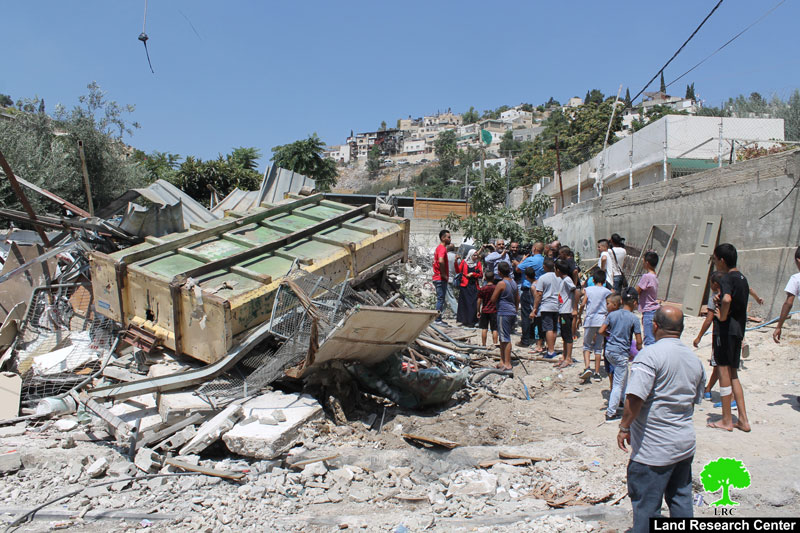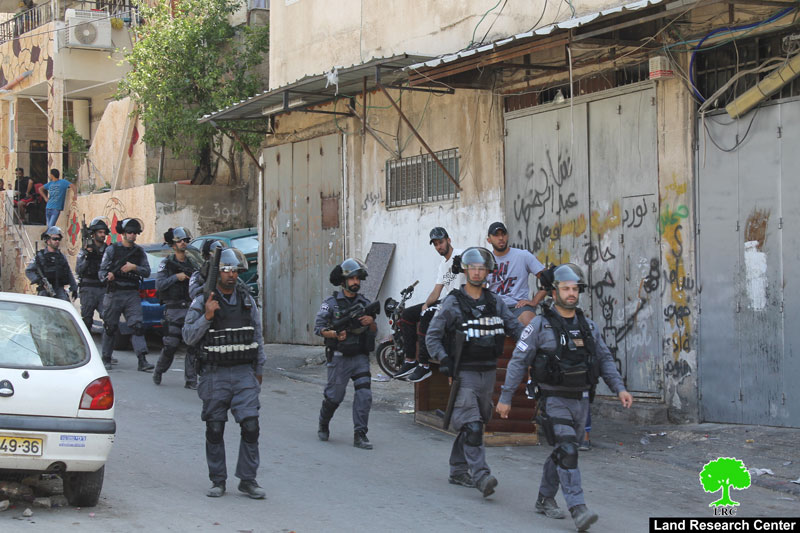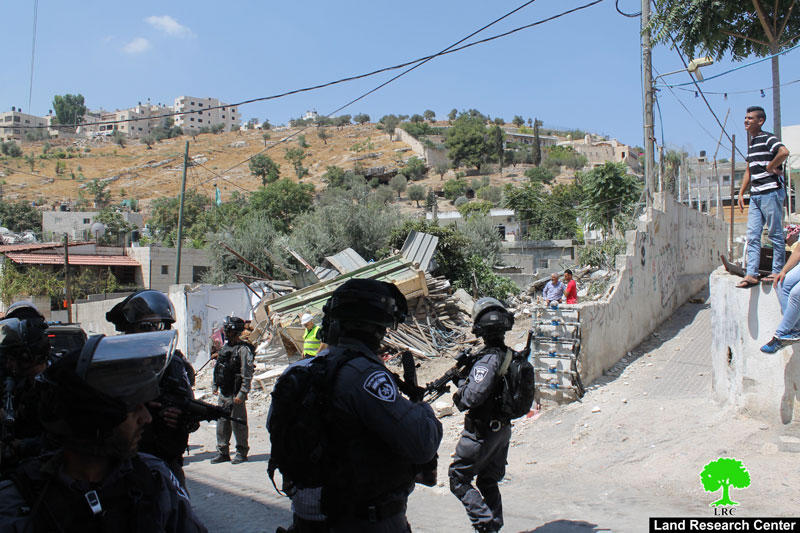2017-08-22
The Israeli occupation demolishes a residence in Silwan town
Bulldozers of the Israeli occupation municipality in Jerusalem demolished on August 15, 2017 a residence owned by Abdelkareem Abu Sneineh in Al-Bustan neighborhood in Silwan.
Reportedly, the occupation forces along with bulldozers raided the area, closed it and surrounded the house before executing the demolition operation without prior notice. Abu Sneineh eight member family including 6 children were evicted from the house and are now homeless.
Noteworthy, the dozers demolished a 80m2 residence and a 50m2 storage that is adjacent to the residence.
The owner of the house Abdelkareem Abu Sneineh announced his intention to rebuild the apartments.
After the demolition operation ended, residents of the neighborhood cleaned the rubbles and reconstructed the house in the same location. Unfortunately, the occupation came back on August 22, 2017 and brought the house down for the second time on the claim of unlicensed construction.
|
|
|

Land Research Center LRC sees that demolitions contradict with all of the International conventions and Humanitarian laws including:
- Article 17 of the (1948) Universal Declaration of Human Rights stating: “Everyone has the right to own property alone as well as in association with others. No one shall be arbitrarily deprived of his property.”
- Section ‹G› of article 23 of the (1907) The Hague Conventions asserting: “In addition to the prohibitions provided by special Conventions, it is especially forbidden to destroy or seize the enemy's property, unless such destruction or seizure be imperatively demanded by the necessities of war.”
- Article 53 of the Geneva Fourth Convention (1948) declaring: “Any destruction by the Occupying Power of real or personal property belonging individually or collectively to private persons, or to the State, or to other public authorities, or to social or cooperative organizations, is prohibited, except where such destruction is rendered absolutely necessary by military operations.”
- Section 1, Article 11 of the International Covenant on Economic, Social and Cultural Rights (1966): “The States Parties to the present Covenant recognize the right of everyone to an adequate standard of living for himself and his family, including adequate food, clothing and housing, and to the continuous improvement of living conditions. The States Parties will take appropriate steps to ensure the realization of this right, recognizing to this effect the essential importance of international co-operation based on free consent."
This case study is part of Kan'aan Project



